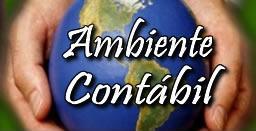Teaching sustainability to accounting students: reducing your ecological footprint (EP)
DOI:
https://doi.org/10.21680/2176-9036.2023v15n1ID29122Keywords:
Ecological footprint, Environmental education, SustainabilityAbstract
Purpose: To analyze the changes in the composition of the ecological footprint (EP) of students of accounting sciences caused by the teaching of sustainability.
Methodology: Qualitative and quantitative approach, descriptive techniques and analysis of the collective subject discourse (CSD). Introduction to the topic and guidance to the WWF Brazil website to calculate EF.
Results: In the first round, EF was 1.96 global hectares. Relevant components: food, government and transport. After cluster analysis, DSC analysis of the three clusters generated was performed, with red meat consumption being the main cause of the result. Students were instructed to reflect on changes to recalculate EF with new habits, revealing a reduction in the second round.
Contributions of the Study: Consisted of a robust methodology for the analysis of EF, including the combination of cluster analysis with the DSC. Conclusion: Confirmation of the academic role in environmental awareness to achieve sustainable development. It illustrated the importance of education for sustainability by changing students' attitudes.
Downloads
References
Arruda, R. O. M.; Azevedo, F. D., & Dalmas, F. B. (2017). Pegada Ecológica: uma ferramenta utilizada como indicador e conscientizador do consumo, aplicado na UNG Universidade, Guarulhos/SP: divulgação cientifica e tecnológica do IFPB. Revista Principia, 33:1-8.
Barbosa, G. S. (2008). O desafio do desenvolvimento sustentável. Revista Visões, 1(4).
Becker, M. (2012). A Pegada Ecológica de Campo Grande e a família de pegadas. WWF Brasil.
Calixto, L. (2006). O ensino da contabilidade ambiental nas universidades brasileiras: um estudo exploratório. Revista Universo Contábil, 2(3):65-78.
Comissão Mundial sobre Meio Ambiente e Desenvolvimento - CMMD. (1991). Nosso futuro comum. 2a ed. Tradução de Our common future. Rio de Janeiro: Ed. Fundação Getúlio Vargas
Collins, A., Galli, A., Patrizi, N., & Pulselli, F. M. (2018). Learning and teaching sustainability: the contribution of Ecological Footprint calculators. Journal of Cleaner Production, 174:1000-1010. doi: https://doi.org/10.1016/j.jclepro.2017.11.024
Dias, G. F. (2002). Pegada ecológica e sustentabilidade humana. São Paulo: Gaia.
Fernández, M., Alférez, A., Vidal, S., Fernández, M. Y., & Albareda, S. (2016). Methodological approaches to change consumption habits of future teachers in Barcelona, Spain: reducing their personal Ecological Footprint. Journal of Cleaner Production, 122, 154-163. doi: https://doi.org/10.1016/j.jclepro.2016.02.026.
Fonseca, I., & Oliveira, S. S. (2013). A Pegada Ecológica como instrumento metodológico na relação meio ambiente e ensino de ciências. Os Desafios da Escola Pública Paranaense na Perspectiva do Professor PDE, l:1-22.
Global Footprint Network - GFN. (2008). Ecological Footprint. Recuperado de https://www.footprintnetwork.org/our-work/ecological-footprint.
Guedes, V. L. (2015). Pegada ecológica como recurso didático em atividades de educação ambiental on-line. Educação Unisinos, 19(2):283-289. doi: 10.4013/edu.2015.192.12
Higino, J. R., Hilgemberg, T., Souza, F. M., & Meurer, A. M. (2022). Quantos planetas são necessários para você viver? Pegada Ecológica de Estudantes de Ciências Contábeis. Gestion Joven, 23 (2), 3.
Jacobi, P. R. (2003). Educação ambiental, cidadania e sustentabilidade. Cadernos de pesquisa, 118:189-205.
Kapitulčinová, D.; Atkisson, A.; Perdue, J., & Will, M. (2018). Towards integrated sustainability in higher education: mapping the use of the accelerator tool set in all dimensions of university practice. Journal of Cleaner Production, 172:4367-4382. doi: https://doi.org/10.1016/j.jclepro.2017.05.050
Lefevre, F., & Lefevre, A. (2017). Discurso do sujeito coletivo: nossos modos de pensar, nosso eu coletivo. São Paulo: Andreoli.
Lisboa, C. K., & Barros, M. V. F. (2010). A pegada ecológica como instrumento de avaliação ambiental para a cidade de Londrina. Confins. Revue franco-brésilienne de géographie/ Revista franco-brasileira de geografia, 8. doi: https://doi.org/10.4000/confins.6395
Marques, R. M. (2010). Estudo de conscientização e práticas ambientais dos estudantes de pós-graduação na área de meio ambiente no Rio de Janeiro. In: VI Congresso Nacional em Gestão, Niterói, RJ, Brasil.
Nicolaides, A. (2006). The implementation of environmental management towards sustainable universities and education for sustainable development as an ethical imperative. International Journal of Sustainability in Higher Education, 7(4):414-424. doi: https://doi.org/10.1108/14676370610702217
Rieckmann, M. (2017). Educação para os objetivos do desenvolvimento sustentável: objetivos de aprendizagem. Brasília: Unesco.
Scarpa, F. (2012). Pegada Ecológica: qual é a sua? São José dos Campos: INPE.
Silva, M. S., & Cipolat, C. (2016). Pegada ecológica: uma análise dos colaboradores e familiares do Supermercado Selau em Santana do Livramento–RS (Monografia de Especialização). Universidade Federal do Pampa, Campus Santana do Livramento.
Tayra, F., & Ribeiro, H. (2006). Modelos de indicadores de sustentabilidade: síntese e avaliação crítica das principais experiências. São Paulo: Saúde e Sociedade.
Universidade Estadual de Ponta Grossa – UEPG. (2019) Departamento de Contabilidade. Recuperado de https://pitangui.uepg.br/departamentos/decon/historico.php.
World Wild Life Fundation - WWF. (2012) Pegada Ecológica. Recuperado de: https://www.wwf.org.br/natureza_brasileira/especiais/pegada_ecologica/o_que_e_pegada_ecologica.
Zheng, N., Li, S., Wang, Y., Huang, Y., Bartoccid, P., Fantozzid, F., & Li, J. (2021). Research on low-carbon campus based on ecological footprint evaluation and machine learning: A case study in China. Journal of Cleaner Production, 323, 129-181. doi: https://doi.org/10.1016/j.jclepro.2021.12918.
Downloads
Published
How to Cite
Issue
Section
License
Copyright (c) 2023 REVISTA AMBIENTE CONTÁBIL - Universidade Federal do Rio Grande do Norte

This work is licensed under a Creative Commons Attribution-NonCommercial-ShareAlike 4.0 International License.
Authors who publish in this magazine agree with the following terms:
Authors keep the copyrights and concede the right of its first publication to the magazine. The work piece must be simultaneously licensed on the Creative Commons Attribution Licence which allows the paper sharing, and preserves both the author identity and the right of first publication to this magazine.
Authors are authorized to assume additional contracts separately, to not-exclusively distribution of the paper version published in this magazine (e.g.: publish in institutional repository or as a book chapter), with the author identity recognition and its first publication in this magazine.
Authors are permitted and stimulated to publish and distribute their papers online (e.g.: in institutional repository or on their personal webpage), considering it can generate productive alterations, as well as increase the impact and the quotations of the published paper.
Creative Commons - Atribuição-NãoComercial-SemDerivações 4.0 Internacional.


 Português (Brasil)
Português (Brasil) English
English Español (España)
Español (España)


